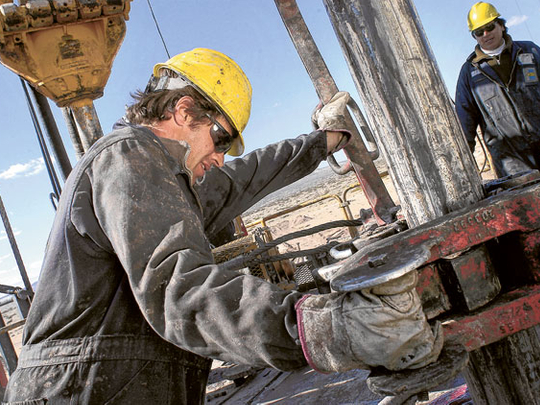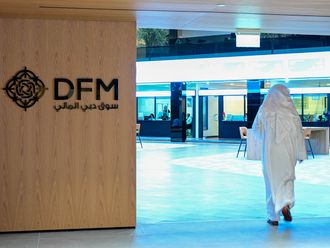
Few weeks ago this column said that nothing will affect oil market development as much as the evolution of the global economic situation.
This has become very clear in the last month when the perception of economic and financial development turned more to the negative and the IMF warned recently that "the global economy is in a dangerous new phase".
Global GDP growth is now seen at 3.9 per cent in 2011 and at 4.2 per cent in 2012 with significant downside risks. The Organisation of Petroleum Exporting Countries (Opec) is even more conservative with lower numbers at 3.6 per cent and 3.9 per cent respectively.
The debt crises in Europe and the US could impact the rest of the world where the prospects of growth are still good. The reprieve of Greece towards the end of the month may have given the market some breathing space. But the danger is still there.
The fear that all this might cause a new recession is justified. In 2008, the impact on the oil market was characterised by falling demand and collapsing prices. But this has not happened so far and unlikely to happen with the same severity. Major forecasting agencies, including Opec, have made some adjustments to their demand numbers but not significantly. The call on Opec oil is still seen as 29.9 million barrels a day (mbd) in 2011 rising to 30 million bpd in 2012.
The noticeable impact on oil prices in September was not enough to remove the resilience by any dramatic declines. The price of the Opec crude basket started the month at $111.21 a barrel and with very volatile ups and downs finished the month at almost $103 a barrel, such that the average of September is close to $107.90 as compared to $106.32 a barrel in August.
The gloom in the OECD region of stagnant or declining oil demand is compensated by still rising demand in China, India, the Middle East and the rest of the developing countries. China is expected to fill its strategic oil reserves and commercial inventories in 2012 at rates close to over 400,000 bpd as anticipated by JPMorgan Chase especially that prices have come down now. Opec is also expected to be ready for action if prices go down further as the budget break-even price for many countries has increased recently due to enlarged social spending programmes.
The market is watching out for the return of Libyan production where the IEA does not expect it to be at more than 300,000 bpd in the fourth quarter. Opec Secretary General Abdullah Al Badri said recently that "the priority at this time is to restore production, to put the oil industry as it was before this revolution."
He expected 15 months will be sufficient to restore Libya's production to 1.6 million bpd given the right security situation for workers and installations. These remain to be seen as the conflict is still raging and the devil lies in the details of how much the installations are damaged and how quickly repairs can be made.
Obviously Al Badri is rightly concerned as he said Western nations needed to do more to bolster their economies and stem unemployment or they risked jeopardising billions of dollars in oil investments. While Al Badri said in a Bloomberg Television interview "by the end of this year the oil price will be the same" as it is now there are other uncertain observers.
Chris Bake of Vitol said "for fourth quarter and going into 2012, my sense is that we can see a plus/minus one million bpd crude demand change versus 2011 year to date level. This depends on how growth in Asia and other emerging markets deals with the financial issues that are affecting the OECD countries."
But it is possible that the OECD countries may decide to also build stocks which will give support to prices. Stocks there fell below the five-year average for the first time since 2008. But a survey by Reuters of 148 investors, fund managers and experts have reduced their price expectations for West Texas Intermediate to $90 a barrel in 2012 from a previous expectation of $98 a barrel. This roughly equates to the year to date average for the Opec basket of nearly $108 a barrel. Not a bad thing given the circumstances.
The writer is former head of Energy Studies Department at the Opec Secretariat in Vienna.











